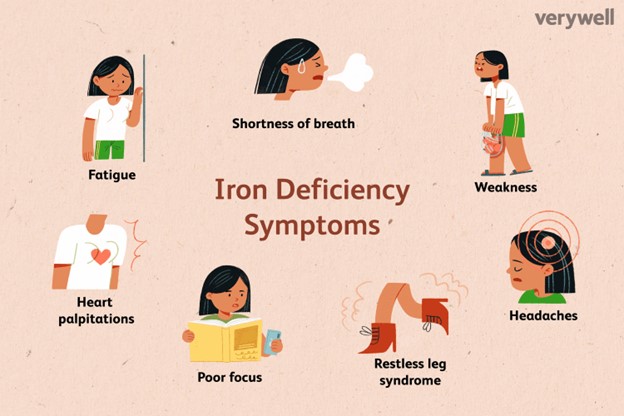A nurse is assessing a client who may be pregnant. The nurse reviews the client's history for presumptive signs. Which signs would the nurse most likely note? Select all that apply.
Nausea
Abdominal enlargement
Positive pregnancy test
Braxton Hicks contractions
Amenorrhea
Correct Answer : A,B,C,E
Choice A Reason: Nausea is a common presumptive sign of pregnancy, especially in the first trimester. It is caused by hormonal changes and may be accompanied by vomiting.
Choice B Reason: Abdominal enlargement is another presumptive sign of pregnancy, as the uterus grows to accommodate the developing fetus. It may be noticeable as early as 12 weeks of gestation.
Choice C Reason: A positive pregnancy test is a presumptive sign of pregnancy, as it detects the presence of human chorionic gonadotropin (hCG), a hormone produced by the placenta. However, it is not a definitive sign, as it may be affected by other factors such as medications, tumors, or false positives.
Choice D Reason: Braxton Hicks contractions are not a presumptive sign of pregnancy, but a probable sign. They are irregular and painless contractions of the uterus that occur throughout pregnancy, but become more frequent and noticeable in the third trimester. They are also known as false labor contractions.
Choice E Reason: Amenorrhea, or the absence of menstrual periods, is a presumptive sign of pregnancy, as it indicates that ovulation has ceased. However, it is not a definitive sign, as it may be caused by other factors such as stress, illness, or hormonal imbalances.
Nursing Test Bank
Naxlex Comprehensive Predictor Exams
Related Questions
Correct Answer is D
Explanation
Choice A Reason: This is incorrect because hemoconcentration by hypertension is a condition where the blood volume decreases and the blood pressure increases, leading to a higher hemoglobin level. A normal hemoglobin level for a pregnant woman in her second trimester is 10.5 to 14 g/dL. A hemoglobin level of 11 g/dL is within the normal range, not indicative of hemoconcentration.
Choice B Reason: This is incorrect because a multiple gestation pregnancy is a pregnancy with more than one fetus, such as twins or triplets. A multiple gestation pregnancy can cause a lower hemoglobin level due to increased blood volume and increased demand for iron. A hemoglobin level of 11 g/dL is not suggestive of a multiple gestation pregnancy.
Choice C Reason: This is incorrect because greater-than-expected weight gain is not directly related to the hemoglobin level. Weight gain during pregnancy depends on various factors such as pre-pregnancy weight, nutrition, physical activity, and genetics. A hemoglobin level of 11 g/dL does not reflect the weight status of the pregnant client.
Choice D Reason: This is correct because iron-deficiency anemia is a common type of anemia that occurs when the body does not have enough iron to produce enough red blood cells. Iron-deficiency anemia can cause a low hemoglobin level and affect the oxygen delivery to the tissues and the fetus. A hemoglobin level of 11 g/dL may indicate iron-deficiency anemia, especially if the client has other symptoms such as fatigue, weakness, pale skin, or cravings for non-food items. The nurse should confirm the diagnosis with further tests and recommend iron supplements and dietary changes to treat the condition.

Correct Answer is C
Explanation
Choice A: A clear liquid diet is not appropriate for a client with hyperemesis gravidarum, which is a severe form of nausea and vomiting during pregnancy that can lead to dehydration, electrolyte imbalance, and weight loss. A clear liquid diet does not provide adequate calories, protein, vitamins, or minerals for the client and the fetus.
Choice B: Administration of diethylstilbestrol is not indicated for a client with hyperemesis gravidarum. Diethylstilbestrol is a synthetic estrogen that was used in the past to prevent miscarriage and premature birth, but it was found to cause serious adverse effects such as vaginal cancer, infertility, and birth defects in the offspring.
Choice C: Total parenteral nutrition is the correct choice because it provides a complete and balanced source of nutrients through a central venous catheter. It is used for clients who cannot tolerate oral or enteral feeding due to severe gastrointestinal disorders such as hyperemesis gravidarum. It helps to prevent malnutrition, dehydration, and ketosis in the client and the fetus.
Choice D: Nothing by mouth is not a suitable option for a client with hyperemesis gravidarum. It can worsen the condition by causing starvation, acidosis, and ketosis. It can also increase the risk of aspiration pneumonia if the client vomits.
Whether you are a student looking to ace your exams or a practicing nurse seeking to enhance your expertise , our nursing education contents will empower you with the confidence and competence to make a difference in the lives of patients and become a respected leader in the healthcare field.
Visit Naxlex, invest in your future and unlock endless possibilities with our unparalleled nursing education contents today
Report Wrong Answer on the Current Question
Do you disagree with the answer? If yes, what is your expected answer? Explain.
Kindly be descriptive with the issue you are facing.
